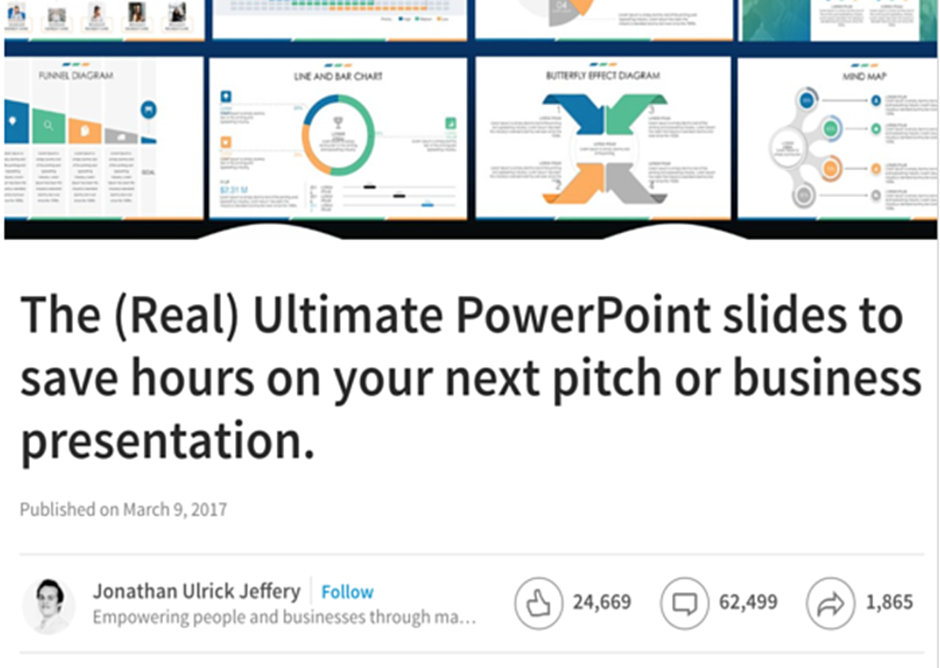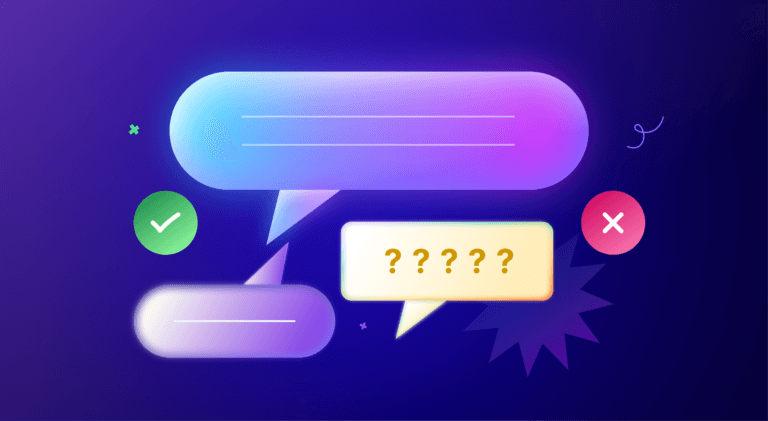
Acquiring new customers is very important for any type of business. Businesses are always looking for new ways to attract customers, and hence this can often lead to marketers and companies getting stuck in creating and distributing content.
Today, consumer behavior is changing, and that’s one of the main reasons businesses are moving away from traditional outbound marketing and adopting inbound marketing strategies. While outbound marketing focuses on approaching customers, you use innovative strategies to get customers to approach you with inbound marketing.
If you’re planning to start inbound marketing strategies for your business, here are six inbound marketing strategy examples for you.
What is Inbound Marketing?
Before we get into the inbound content examples, let’s first understand the inbound marketing methodology and why you must use it for your brand.
Inbound marketing is a strategy used to drive potential customers to your brand. So, you create valuable content that gets customers to approach you rather than advertising your services and products. It’s designed to attract, engage and delight customers while also driving business growth.

You must use inbound marketing for your business as it helps to build trust with potential customers who show interest in your products or services. Look at some of the best inbound marketing examples that you can use for your business to get an idea of how it’s done.
Inbound marketing brings many benefits. Some of them are as follows:
- Increases brand awareness
- Increases customer conversion
- Cost-effective
- Builds long-term relationships
- Educates prospects
- Drives high-quality leads

6 Inbound Marketing Strategy Examples
As more and more businesses turn to inbound marketing tactics, getting your content to stand out is becoming challenging. The primary approach to content marketing should be to provide valuable and relevant content to the audience. Here are six inbound marketing tips and examples that you can use for your inbound marketing.
1. Make-A-Wish Foundation
The Make-A-Wish Foundation is known to help children with critical illnesses. Through one of their campaigns to help a boy suffering from leukemia, the organization brought about awareness and drove in more donations to help others.

The campaign was called the Batkid Begins campaign, where the boy became Batman for a day. The organization partnered with Warner Bros and New Line Cinema and went viral on social media.
According to Digital Media Management – the firm that handled the marketing for Batkid Begins – the main objective of the social campaign was to generate enough buzz to inform general movie-going audiences about the film’s release.
Therefore, they designed the content and graphic material along the lines of the Batman comic book. They also collaborated with a DC Comics artists to create a series of four animated Batkid Begins comic strips.
This resulted in fans of the original Batman series sharing this content, and eventually, page likes increased by 200%; the movie trailer was viewed 160,000 times, with over 5,000 shares.
2. Bank of America

Bank of America followed a smart approach with their inbound marketing strategy and created Money Health classes where they partnered with Khan Academy. The classes use Khan Academy’s platform and Bank of America’s domain, which helped to give them a wider reach. Since the content can be easily repurposed, it turned out to be a very effective content marketing method.
The idea behind Better Money Habits is to inform people about their money. By positioning itself as a free financial education platform, Better Money Habits has been helping customers across the country make sense of their finances and utilize them in the best manner possible.
Better Money Habits provides a wide range of topics, including student loans, credit, homeownership, budgeting, saving, etc. And the content is easy to understand and digest.
3. Shutterstock

Shutterstock publishes a yearly creative trends infographic packed with valuable information and well-designed. Since it’s published every year, people look forward to its release. As the infographic is valuable, people are more likely to share and engage with the content every year.
And this is such a fantastic way to draw in users. Shutterstock analyzes what its users worldwide are searching for and establishes trends around them every year. They wield power to showcase the trends that creative projects are establishing. Moreover, their new Shutterstock.AI performance data is also a great way to determine what content is working and what isn’t.
4. Airbnb

Specialized articles are perfect for creating authority. However, user-made content is another inbound marketing strategy that builds brand awareness and engagement and generates organic leads. Moreover, Airbnb is a lesson in how not to only rely on UGC.
Airbnb smartly uses inbound marketing and encourages users to share their travel experiences on social media. They even take it further and promote photos, travel guides, and videos that clients and owners create.
It is fascinating to note the history behind how Airbnb started this. Of course, it has its own branded materials and tools, but the primary revenue for Airbnb comes from its hosts. Over time the brand realized that while they were making money, they weren’t growing as a brand.
They realized that the photos that hosts and users were putting up weren’t very aesthetic. So they did what they could, and the founders went from house to house in NYC, taking professional pictures of the listings. Revenue doubled, and today, the brand is present in over 220+ countries across the globe.
5. Babylist

Expecting and new parents are often overwhelmed with responsibilities and have many questions. Babylist focuses on content that answers baby-related questions that expecting parents may have. This includes everything from bottles to strollers and a lot more. As a ToFu offer, the brand presents a quiz that creates a smart, personalized baby registry based on the user’s answers once completed.
It’s incredible to see how Babylist works. The website is actually a registry that parents can set up when expecting their baby. It was started by a mom and software engineer who realized that moms had little choice when building their baby gift registry. So she decided to set up something more comprehensive.
Over time, their marketing efforts resulted in guides for new moms focusing on content varying from everything a new parent may want. They list product updates and listicles, talk about more relevant content like the lack of formula and how to store or make your own, post-partum depression, and much more. What a fabulous way to get the target audience hooked on your brand!
6. 24Slides

24Slides, the popular PowerPoint development company, helps its users develop great presentations, saving a lot of time and increasing the value of the information they show. The company created a ToFu offer that helped them achieve outstanding results.
Instead of simply asking for emails and names, they requested consumers to share or comment on a specific offer. This led to almost 100,000 engagements and helped to grow their list by around 80,000 subscribers.
The Final Word
Inbound marketing is an excellent strategy to make headway when promoting your brand to your target audience subtly. The whole idea is to draw in your customer and attract them with content that they will find exciting and solve their pain points. As you offer them more solutions in the form of content, they will trust your brand even more. And that is the key to then ensuring that they become loyal customers.
These inbound marketing strategy examples will provide you with the inspiration you require to create exciting content for your customers.
Key Takeaways
- Inbound marketing focuses on driving potential customers to your business rather than advertising your services and products.
- You should use inbound marketing for your business because it helps build trust with potential customers.
- When you use inbound marketing and sales strategies for your business, your content needs to be relevant and valuable for your audience.
- Some of the main benefits of inbound marketing are to increase brand awareness and cost-effectiveness, increase customer conversion, help to build long-term relationships, drive high-quality leads, and educate prospects.
FAQs
You can create a powerful inbound marketing strategy in the following way:
– Building buyer personas
– Set your inbound marketing strategy objectives
– Outline your customer’s marketing triggers
– Create a list of keywords
– Align content to the buyer’s journey
– Create a lead nurturing process
– Conversion-focused blogging
– Build a team of inbound marketing strategy experts
Here are four ways to use content in your inbound marketing strategy:
1. Use content to drive people to your website
2. Use content to convert visitors into leads
3. Use content to nurture your leads into customers
4. Use content to delight your customers into promoters
Inbound content strategy focuses on using content to attract, engage, and delight your website visitors. It allows you to tell a compelling story that inspires and educates your visitors.
The four stages of inbound methodology are attracted, convert, close, and delight.
Outbound marketing is all about reaching out to customers to garner interest in your brand. In inbound marketing, you create and distribute content to draw people towards your brand.
Latest Blogs
Learn how to rank on AI search engines like ChatGPT, Perplexity, and Gemini by optimizing your content for authority, structure, and relevance. Stay ahead in AI-driven search with this strategic guide.
Explore the best healthcare SEO services for your medical practice. Improve online visibility and effectively reach more patients in need of your services.
Discover top social media agencies specializing in banking solutions, enhancing financial services and driving engagement.
Get your hands on the latest news!
Similar Posts

Content Marketing
4 mins read
11 Best B2B Content Marketing Agencies for B2B Companies in 2024

Content Marketing
5 mins read
Top ecommerce Marketing Agencies with Proven Strategies for 2024

Content Marketing
5 mins read